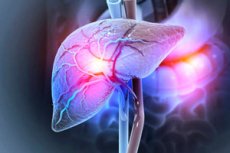Role of hUC-MSCs in the treatment of acute liver failure: mechanistic evidence
最近審查:14.06.2024

Acute liver failure (ALF) is a life-threatening clinical problem with limited treatment options. Administration of human umbilical cord blood mesenchymal stem cells (hUC-MSCs) may be a promising approach for the treatment of ALF. This study aims to investigate the role of hUC-MSCs in the treatment of ALF and the underlying mechanisms.
A murine ALF model was induced by lipopolysaccharide and d-galactosamine administration. The therapeutic effects of hUC-MSCs were assessed by analyzing serum enzyme activity, histological status, and cell apoptosis in liver tissues. The level of apoptosis was analyzed in AML12 cells. Inflammatory cytokine levels and phenotype of RAW264.7 cells co-cultured with hUC-MSCs were determined. The C-Jun N-terminal domain kinase/nuclear factor kappa B signaling pathway was studied.
Treatment with hUC-MSCs decreased serum alanine aminotransferase and aspartate aminotransferase levels, reduced pathological damage, attenuated hepatocyte apoptosis, and decreased mortality in vivo. Co-culture with hUC-MSCs reduced the level of AML12 cell apoptosis in vitro. Moreover, LPS-stimulated RAW264.7 cells exhibited elevated levels of tumor necrosis factor-α, interleukin-6, and interleukin-1β and higher proportion of CD86-positive cells, whereas co-culture with hUC-MSCs decreased the levels of these three inflammatory cytokines and increased the proportion of CD206-positive cells. HUC-MSCs treatment inhibited the activation of phosphorylated (p)-Jun kinase N-terminal domain and p-nuclear factor kappa B not only in liver tissues but also in AML12 and RAW264.7 cells co-cultured with hUC-MSCs.
In summary, hUC-MSCs may mitigate AKI by inhibiting hepatocyte apoptosis and regulating macrophage polarization, and thus hUC-MSCs-based cell therapy may serve as an alternative option for patients with liver failure.
The results were published in the Journal of Clinical and Translational Hepatology.

